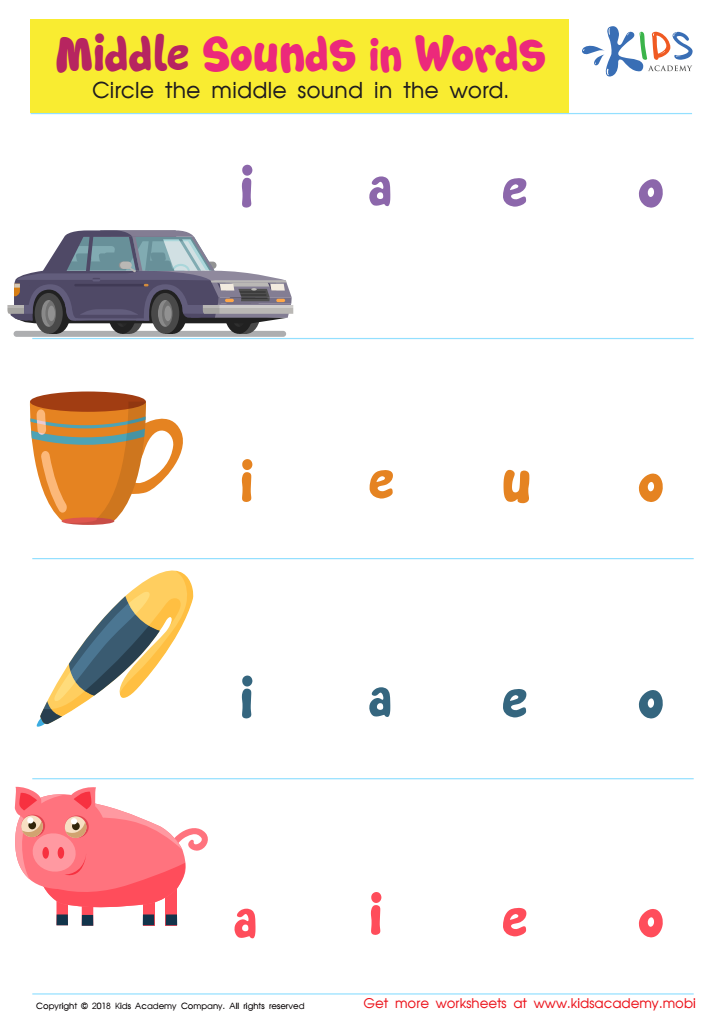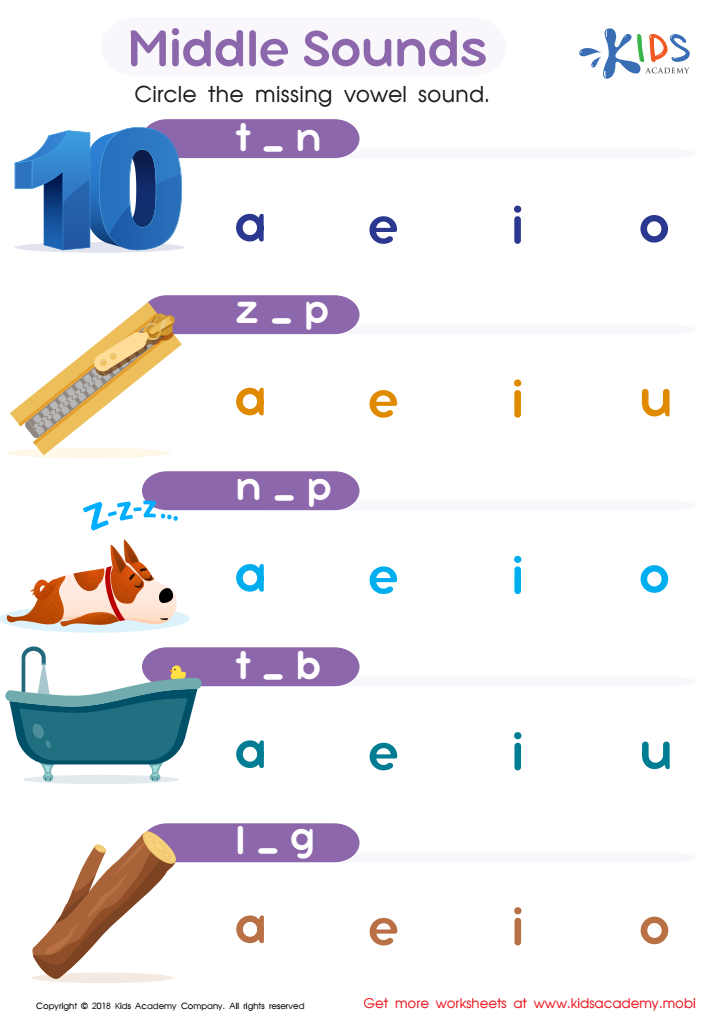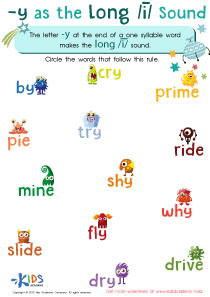Middle Vowel Worksheets for Ages 4-8
4 filtered results
-
From - To
Discover our engaging Middle Vowel Worksheets designed specifically for children ages 4 to 8. These interactive resources help young learners master the concept of middle vowels through fun and age-appropriate activities. Each worksheet encourages kids to identify, fill in, and apply middle vowels in various words, fostering essential phonetic skills and enhancing reading proficiency. Perfect for home or classroom use, our worksheets promote early literacy in an enjoyable way. Access a wide range of colorful and stimulating worksheets that make learning fun and effective. Start your child’s journey towards spelling and reading success with our Middle Vowel Worksheets today!


Vowel and Consonant Sounds: Assessment Worksheet


Middle Sounds in Words Worksheet


Middle Sounds Worksheet


Phonics and Word Recognition: Assessment 1 ELA Worksheet
Middle vowels are critical to reading and language development for children aged 4 to 8. As they begin to decode words, understanding middle vowels greatly influences their reading fluency and comprehension. The middle vowels (often the short and long vowel sounds) play a significant role in word construction in the English language, allowing children to differentiate between similar-sounding words and understand their meanings.
For parents and teachers, emphasizing middle vowels aids in the development of spelling skills and phonemic awareness. Children who grasp these sounds can better predict word formations, leading to improved reading and writing abilities. Moreover, mastering middle vowels builds a foundation for more complex phonics skills, essential for future academic success.
Incorporating engaging activities focused on middle vowels, such as phonics games, word searches, and read-alouds, makes learning fun while reinforcing these sounds. This focus not only enhances literacy skills but also bolsters a child’s confidence in their reading abilities. Ultimately, nurturing a solid understanding of middle vowels paves the way for a lifelong love of reading, equipping students with crucial language skills they will rely on throughout their education and beyond. Therefore, understanding middle vowels should be a priority for both parents and teachers in early education.

 Assign to My Students
Assign to My Students
















